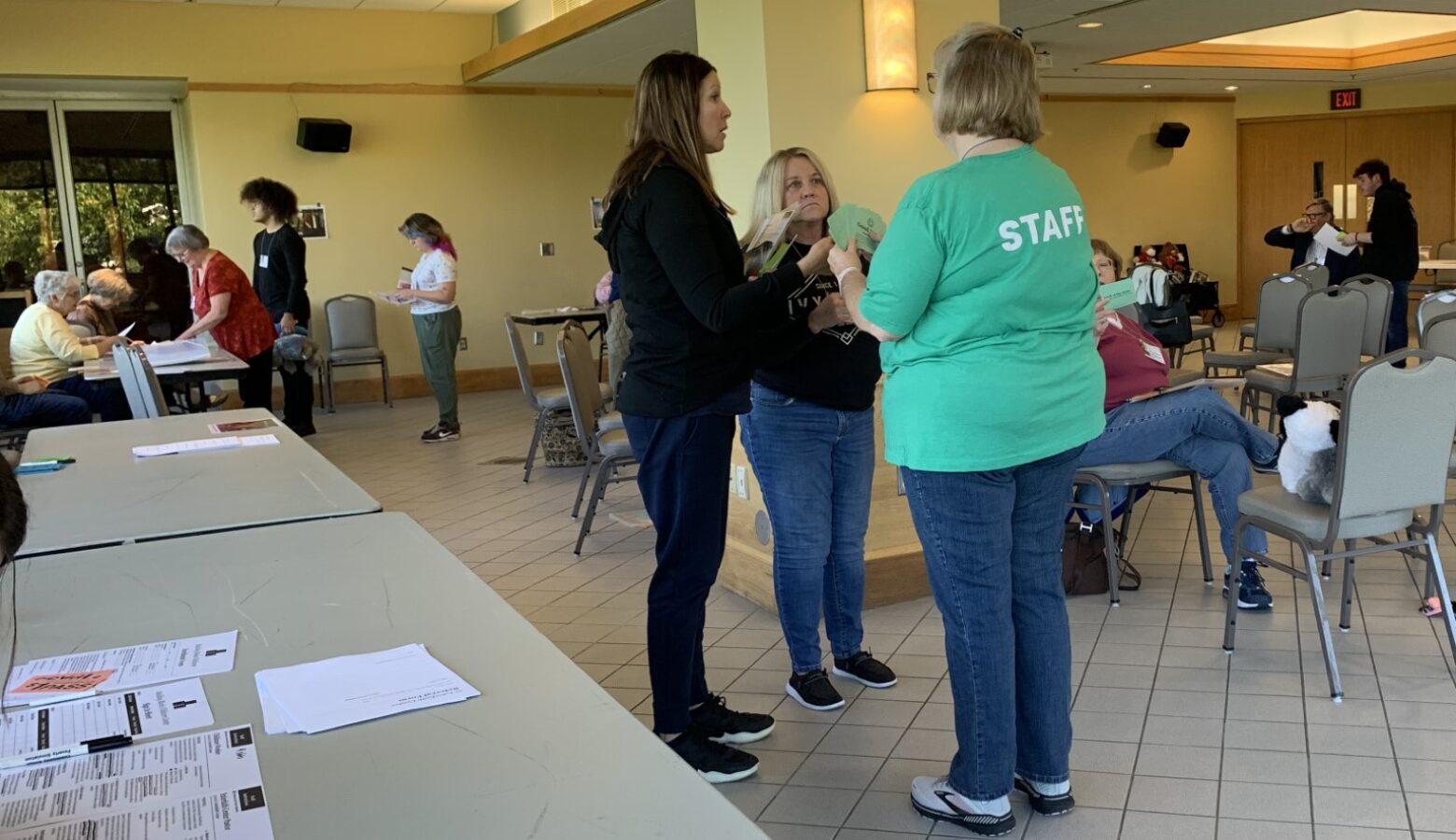Simulation helps people experience the feeling of living and trying to thrive in poverty

Last weekend, several nonprofit organizations came together to give people a momentary experience of what it’s like to live in poverty. It’s part of the Forward STEPS program that aims to help people get out of such poverty. IPR’s Daniel Huber stepped into the simulation to see what it felt like.
Carol Bradshaw with Second Harvest Food Bank is the Forward STEPS Manager.
“I think the biggest lesson is just to have empathy for people who are under-resourced and just to basically walk a mile in their shoes.”
Which is precisely what I did. I joined with Bradshaw’s daughter, Carrie, into a mock family group.
In real life, Carrie is a teacher at The Excel Center in Muncie. In the simulation, they were my boyfriend Glen and we worked together to take care of each other and my one-year-old son Gerald, while living in a homeless shelter.
Read More: Food banks see same food shortages, inflation, and gas prices that clients see
Carrie had volunteered to assist in the simulation before, but this was her first time being a participant.
“At the beginning, I was like ‘Yeah, I have a plan. I’m good,’ and then it immediately went to shreds and I was so stressed out, and I was sweating and literally running around everywhere. So, it was a lot more intense than what I expected it to be.”
Though it was a simulation, to many this is their life. According to Feeding America, more than 730,000 people in Indiana face hunger, including more than 200,000 children. Organizations like Second Harvest are fighting to change that, but they need help – even beyond food donations.
“We have volunteer hours every day of the week,” says Bradshaw. “I think those are the things people also forget is that’s just as important as donating and volunteering is once you have learned about it, is to advocate.”
Read More: New two-year budget awards more than $2 million in funding for food banks
As for the simulation, Carrie – as Glen – and I didn’t have enough money to make ends meet. So, Glen committed crimes to try to help the family.
Second Harvest Food Bank is an IPR underwriter.
Daniel Huber is a news fellow with Ball State Public Media’s Public Media Accelerator student fellowships.

